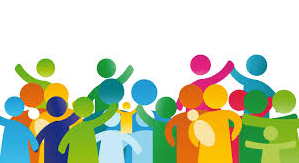
Cultivating connections that better your mental health
Mental Health Awareness Week (12-18th May 2025) is fast approaching and this year, it’s all about “community”. This theme underscores the vital role supportive and connected communities play in our mental wellbeing. While community looks different for everyone, essentially, it’s a group of people brought together through something they have in common. And you can belong to more than one.
A book club, sports team, even a neighbourhood watch forum – similar interests can unite people and create a sense of belonging and support, which research says makes people generally happier. It might be school friends, work mates, or fellow online gamers. It could be a group of people who share commonalities such as location, culture, religion. It might be all of those things and more.
Being part of a community can do wonders for your mental wellbeing. It can offer emotional and practical support. It can reduce stress and loneliness. It can provide meaning, solidarity and direction. And hopefully, those groups will be made up of a tapestry of diverse people whose unique backgrounds and perspectives enrich your community’s cultural fabric.
For me, community has often been a tricky thing to build or, at least, sustain. I moved multiple times as a kid, went to four different primary schools, and then had a different friendship group every year of secondary school. Upon leaving home and education at 16, I went on to have many different jobs that didn’t always result in life-long friendships. This was back before the dawn of social media and new tech, so I couldn’t easily keep in touch with the various friends I’d collected over the years, and of course, people change and grow.
In many of these spaces, I hadn’t realised, understood or accepted my identity. I didn’t always see or acknowledge the systemic oppression and discrimination I experienced as a Black woman. I wasn’t ready to come out as a queer person. I hadn’t fully grasped my mental health issues and still hadn’t been diagnosed. This meant I missed out on, or wasn’t cognisant of, the communities I needed the most.
But over time, these experiences have made me appreciate the importance of believing you belong. And I think it’s true for anybody – there’s no better feeling than being around people who really embrace, celebrate and understand you. Having friends who still have Evanescence’s Fallen on repeat is awesome. Only real Grey’s Anatomy fans will truly get the devastation felt by Lexi’s death. And I personally feel seen when somebody laughs a knowing laugh at my Schitt’s Creek references.
As we journey through life, learning about ourselves and the world around us, we have to be more intentional about seeking out communities that align with our values, beliefs and identities. The kind that support us to grow and thrive and lift us up when we struggle. This is where communities for marginalised groups are particularly integral in helping us accept and embrace who we are, while also advocating for our rights.
Finding LGBTQIA+ groups and spaces can offer support and safety. Advocacy groups for people with disabilities or those who are neurodivergent promote rights and inclusion. Refugee support networks provide practical advice and support. The list goes on. Some community groups also recognise that different aspects of our identity intersect and interact to create a unique experience of discrimination. Like Sistah Space, an organisation that supports women with African and Caribbean heritage who are affected by domestic abuse.
Long story short, communities are necessary. Sometimes simply to find a connection with people who love the same stuff you do, and sometimes to find support you can’t find anywhere else. Whether you already feel you’ve found ‘your people’ or not, as we enter Mental Health Awareness Week, let’s be proactive about seeking out and nurturing the communities that enrich our lives and support our mental wellbeing.
Post a comment